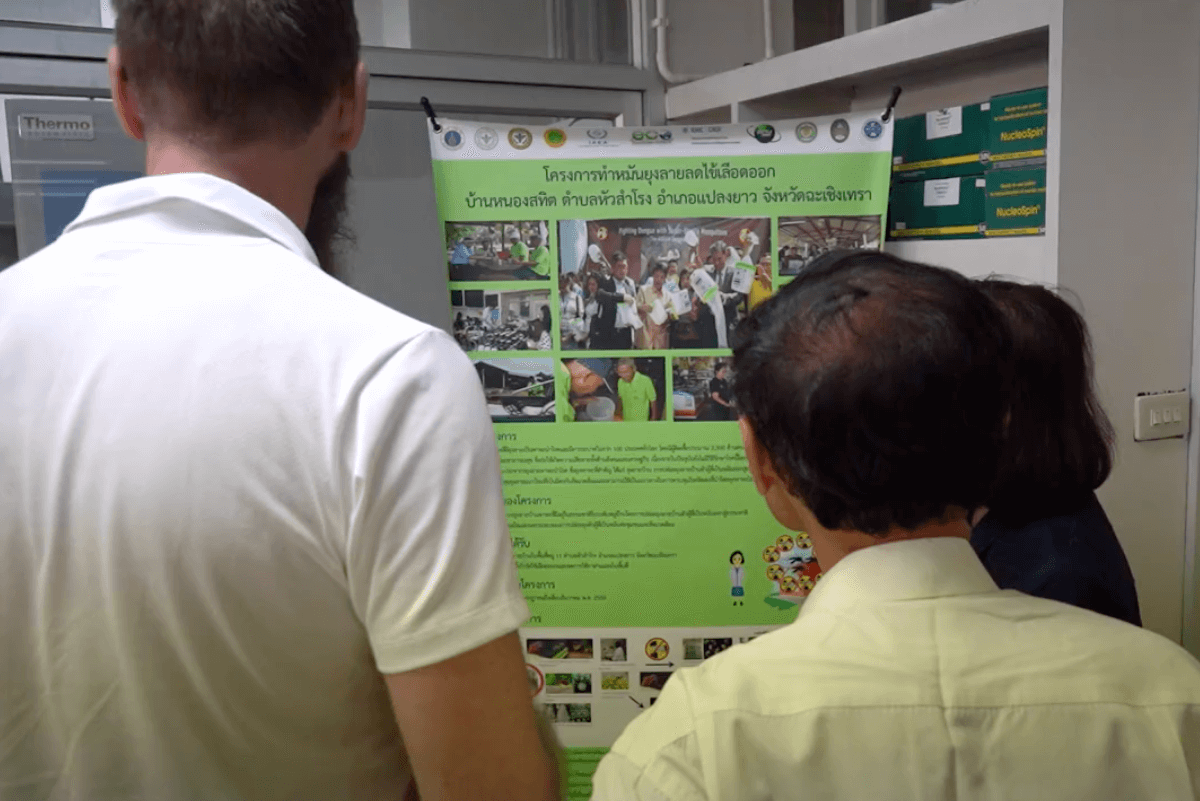Research Uptake

Research uptake objectives
The super-sterile mosquito technique, combining the sterile insect technique (SIT) and the insect incompatible technique (IIT) to sterilise mosquito vectors, is a simple and environmentally friendly approach to reduce mosquito vectors and the transmission of vector-borne diseases. Given its ease of use, no negative environmental impact and effectiveness in suppressing mosquito populations, this research aims to apply this technique to reduce Aedes aegypti mosquito populations and also the diseases they transmitted. Knowledge of the intervention and its implementation strategies will be disseminated after the project ends.
Activities
Knowledge dissemination
This project’s antecedents have already received a lot of publicity in Thailand. Community participation has been excellent and public education through media has been initiated.
Channels of engagement have included:
Newspapers, online articles, TV news, documentary programmes and radio interviews;
Printed education materials, health education meetings and focus group discussions held by the researchers;
Activities which engaged schools around the pilot release site on the ASEAN Dengue Day;
Participation by community members and health volunteers in the release of super-sterile mosquitoes;
Engagement of local government authorities through meetings and during the opening ceremony of the project; and
The Ecohealth Network meeting of country representatives on the ASEAN Dengue Day to inform regional communities about the project.
The researchers will continue to be involved in publicizing the project throughout its duration. After the project ends, information briefs, reports and recommendations to public health end users will be developed. Project findings and outputs will be published in peer review journals to inform wider scientific communities on this important innovative approach to combat vector-borne diseases.
Key audiences
People living in areas affected by dengue and other Aedes-transmitted diseases
Local government authorities and community leaders
School teachers, students and parents
Health workers and vector control specialists
Policymakers and relevant government authorities
Other researchers and practitioners

